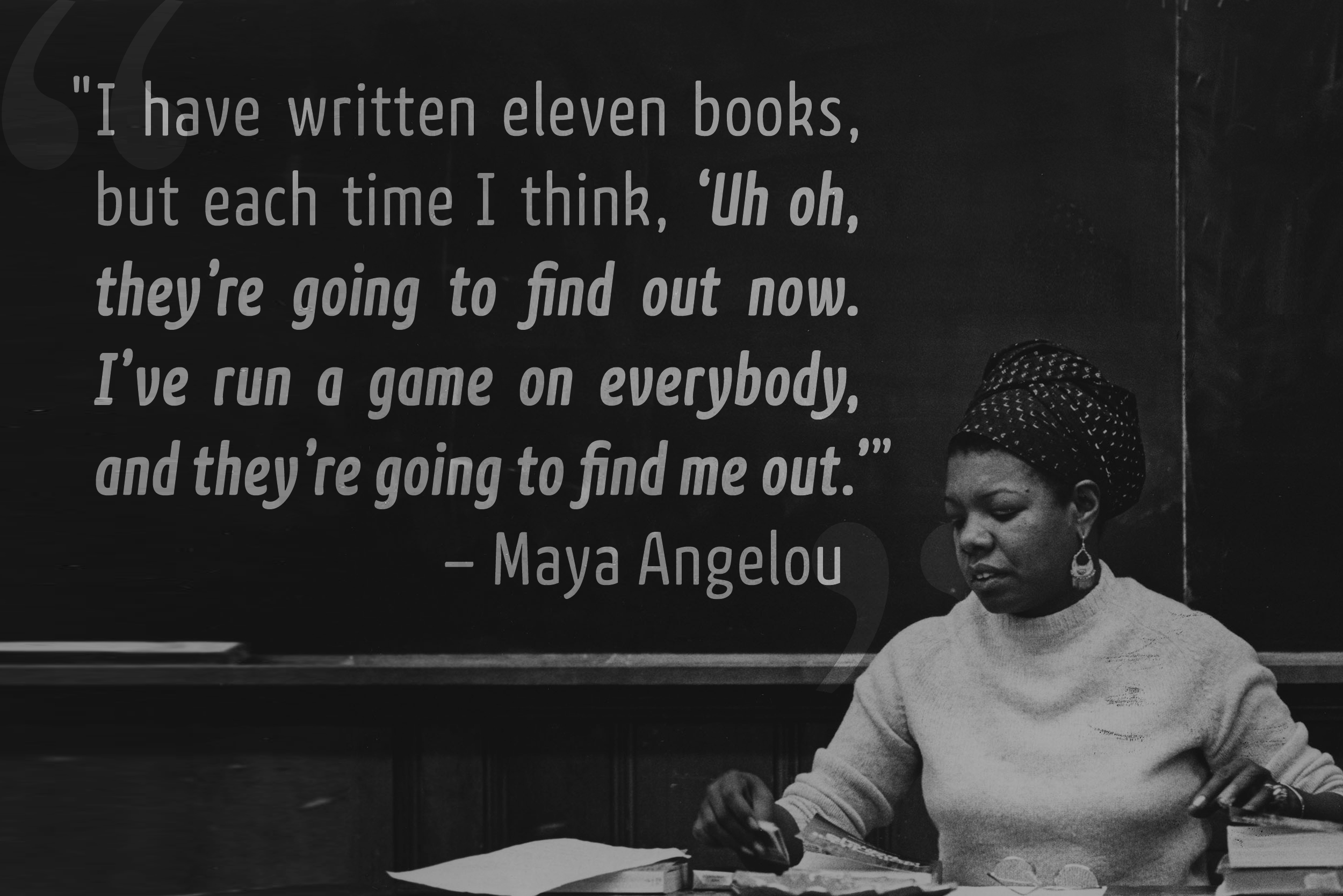By Mieke Pressley
This past semester I tackled a third year’s biggest obstacle in the road to graduation: writing my bachelor thesis. During this (very long) process of crafting the thesis, I found the same question, or some variation on the theme, lingering in the little corner of my mind. At first, a small and wavering voice that eventually became horribly persistent. “What gives you the right to be making these claims?” it wondered. “How can my arguments ever measure up to those of a verified art historian? What makes you think you have that authority? Don’t you know that you’re a massive FRAUD?” My claims and arguments soon became weighed down by this incessant questioning, getting buried under a string of ‘might be argued, may be potentially reveal,’ etc. The feeling of being seen for what I truly am; a fraud, followed me around. This thought carefully perching on my shoulder and judged my every word whenever I opened my laptop to work on my IRP. It wouldn’t be until half-way through the semester that I found out that the feeling has a name: impostor syndrome.
Impostor syndrome has been described as a psychological pattern, although not a psychiatric disorder, in which a person has “an internal belief that you are not good enough,” according to psychotherapist Rachel Buchan. Additionally, any accomplishment achieved by those who relate to impostor syndrome may be brought down to ‘dumb luck’ on their part. The fear to be exposed for just what they think they are: frauds, impostors, is not an unknown feeling to those with imposter syndrome. It can affect anyone and is believed to be experienced by over 70 percent of the world’s total population at some point in their lives. Although often witnessed in academic situations and the workplace, impostor syndrome can manifest itself in all aspects of life. As you may expect, impostor syndrome comes hand in hand with two of its favorite cousins: self-doubt and insecurity. It latches onto these feelings of doubt, and feeds on insecurities, creating the image of one-self as the impostor.
Something clicked in my brain when I heard this definition. Suddenly, the feeling that had been following me around made sense. It not only, explained how I was feeling academically, but it further made me reflect on how I’ve felt about certain aspects of my life during different periods: I recognized a recurring pattern of impostorism. This brings me to my next point where impostorism may have struck most viciously in my own life recently, my increasingly difficult relationship to music.
While being a person who loves music performance, the way I have come to approach music has made it more and more difficult for me to truly enjoy doing it. While nothing could thrill me more a few years ago then to get on stage and sing, it now seems needlessly complicated. Coming to UCR, although having been so good for me in many countless ways, has simultaneously robbed me of my musical ability. No, that phrasing is wrong; it has robbed me of my FAITH in my own musical ability. It is not the university’s fault, I blame a myriad of self-doubt and insecurity, piecing together a persona of musically talented fraud that was born when I came here. I have been blessed to have wonderful friends with whom I can perform. I have been able to sing with the barbershop quartet group, The Roosettes, but among them my mind is sharply aware of my impostor-status. Rehearsals freak me out, and any mistake I possibly make can seem like another layer of my ‘façade’ being stripped away, until they won’t possibly be able to unsee that I am ‘the weak link’. They are the talented, I am the talentless that somehow managed to infiltrate their ranks. The impostorism has made me want to quit any attempts at music altogether, many times.
When the impostor syndrome gains momentum it can be hard to shake it off. But I need to remind myself, refute the things it tells me. The IRP I worried about endlessly wasn’t fraudulent and was well-received. If I truly sucked at music my friends would not want me to perform with them, and likewise, I would not be a part of the Roosettes if I didn’t deserve it.
But the point is not to break myself down and then give myself a nice little pat on the back afterwards. Nor is it a cry for validation. I don’t want to hear that I am talented, smart, whatever, whether you truly believe so or not. I simply wish to bring awareness of this psychological pattern in the most honest way I know: through personal experience. I hope I have brought forward some acknowledgment of the subject and this small rant about my experience, may inspire some of you to do the same. The feeling of being an impostor may not go away, but maybe knowing that you aren’t alone in feeling this way can eventually help. And perhaps next time you find yourself in a room where you have singled yourself out as the fraud, you may realize that at least half the room could be having similar thoughts.
Mieke Pressley, Class of 2019, is a History and Art History Major from Brussels, Belgium
Sources:
Image Source: pinterest

